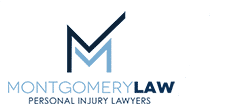Should you consider settling a personal injury claim? There are pros & cons, but it’s ultimately your decision.

The majority of personal injury and wrongful death lawsuits settle before the case ever reaches trial. In fact, nearly 90% of all tort claims settle out of court.
When it comes to the decision of whether or not to accept a settlement offer, it really all depends on the circumstances. While their offer may be lower than you were hoping for, settling prior to trial can save a considerable amount of time. On the other hand, insurance companies often only offer insultingly-low “take it or leave it” settlement deals to those who attempt to handle their own claims.
The truth is that the insurance company will never offer a fair settlement to an unrepresented claimant. They have a team of attorneys ready to fight your claim, and unless you have an attorney on your side willing to represent you in court, they simply have no reason to fairly negotiate. Even if you have no intention on taking your claim to trial, an experienced attorney has the leverage necessary to negotiate a much higher settlement on your behalf directly with the insurance company.
A settlement is essentially a voluntary agreement among the parties to dismiss the claim in exchange for a guaranteed one-time payment to the victim. With a settlement, the defendant doesn’t usually admit fault, and the specifics of the settlement can be kept private. On the other hand, civil litigation involves a public trial with no guaranteed outcome. At trial, fault is decided by a judge or jury, as are any resulting monetary damage awards.
Regardless of whether you seek a settlement or wish to take your case all the way to trial, it is critical to find an attorney with considerable trial experience and strong negotiating skills to look out for your best interests. Here at Montgomery Law, our highly experienced Dallas personal injury attorneys strive to help those who are wrongfully injured, and we handle all cases on a no-win no-fee basis.
Contact a Dallas Personal Injury Lawyer Today
Pros and Cons of Settling Out of Court
There are several advantages to settling a case out of court. These include a quicker resolution of the case, less overall stress, certainty in knowing how much money the victim will be receiving, privacy, as well as reduced attorney fees and other court costs.
Conversely, the shortcomings of settling a case include a lower payout than what a jury might award; the defendant does not usually admit wrongdoing; and because settlements are oftentimes private, the victim may not be able to share his or her story or make certain information public.
Pros and Cons of Going to Trial
The benefits of going to trial include a potentially larger jury award than what is commonly offered during settlement negotiations; since trials are public record, the defendant will be held publicly accountable; a judge may impose additional sanctions and/or punitive damages on the defendant; and there is usually a greater closure for the injured party.
On the other hand, there are several disadvantages of going to trial. For one, civil trials are quite stressful. Even though most personal injury trials do not last more than a few days, the preparation, examination, cross-examination, and having one’s character called into question can be extremely taxing. Further, trials (and appeals, if necessary) can take years, and the plaintiff may not know when he or she will actually receive compensation. This can be stressful if the victim needs the money for medical bills or other expenses, particularly if they’re out of work due to the injury.
Further, trials are inherently unpredictable. From the judge excluding certain evidence, to questionable eyewitnesses, inconsistent testimony and jury perception, an out-of-court settlement can provide a welcome degree of stability and control over the final outcome.
Other Factors to Consider
Even if you wish to settle your case, it is imperative that the defendant still understands that your attorney is willing to litigate in court if necessary. If you make it clear that you have no intention of pursuing an actual lawsuit, the insurance company has no reason to offer you anything close to a fair settlement.
It’s important to realize that because insurance companies are in the business of saving their company money, they are motivated to rush a settlement through regardless of whether it is fair or not to the injured party. They want you to settle before you’ve realized the total value of your damages, and often before you even know the full extent of your injuries.
You should never discuss any type of settlement until your treatment has concluded and/or you fully understand your prognosis. If it’s discovered that you may need additional treatments or surgeries in the future, your claim may be worth much more than you originally thought. Unfortunately, if you’ve already attempted to negotiate, they have you on tape saying you’d settle for much less than what your case is now worth.
Insurance companies may pretend to be on your side, but nothing could be further from the truth. If you’ve been injured due to someone else’s negligence, it’s vital that you speak to an attorney about your options and get their advice before you even discuss your case with the insurance company.
The Advantages of Having an Attorney
Whether you seek to settle your personal injury claim or take it to a courtroom, there are pros and cons on each side. A good attorney is critical to helping you navigate the complexities involved with injury claims to ensure that you receive the justice and compensation you deserve.
Montgomery Law is a Dallas personal injury law firm that you can trust. Our highly experienced attorneys have years of experience handling virtually every type of personal injury case, settling cases and going to trial, and recovering compensation for victims. Best of all, we handle all personal injury and wrongful death cases on a no-win no-fee basis.
Contact us via email, or call us 24 hours a day at 214-720-6090 (local) or 1-833-720-6090 (toll-free) for a free consultation.

Montgomery Law is a Dallas-based personal injury law firm focused on getting clients the justice and compensation they deserve.
Call us toll-free at 1-833-720-6090 to discuss your case today for no cost.


Leave A Comment